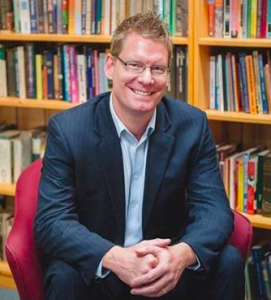This series on Generous Orthodoxy, which I think remains an evangelical movement until it can find a genuine fourth way, I have looked at a number of features that may provide a basis for conversation as we look into the shape of the Church in the next generation. I see the series a bit of a personal credo on where I’ve been and where I think we should go. I hope some of you share this vision with me.
Today’s will focus on culture.
Orthodoxy
Orthodoxy has tended to see itself as timeless, transcultural, and always relevant. Postmodernity has chased that idea down and suggested otherwise.
Everything, it is now argued, emerges out of a cultural context and reflects that context.
Even the Creeds of the Christian faith.
Which is not to deny truth or truthfulness. But, we must remember this: only God is Truth. His revelation in Christ is truth, the scriptural witness is truth, and our theology can articulate truth. But, only God is Truth. Which also means that Truth is ultimately known most completely in relationship with God.
So, if we wish to chart a path for the emerging churches we will have to recognize the place of culture in the way we express the gospel and the way we “do church.” A culture that is disoriented may need a disorienting cultural expression before it can find an orientation.
Generosity
Generosity demands that we be humble about all our culturally-embedded understandings.
When it comes to culture, the generosity dimension of our generous orthodoxy means we will encourage cultural analysis, cultural expression, and cultural adaptation. No one culture will maintain supremacy on how to articulate or express truth.
Language is a part of culture, and that means our language always carries cultural baggage. Which means our language-based articulations of truth are always culturally-shaped. This does not mean that truth can’t or doesn’t transcend culture, but it recognizes with some humility that our articulations are culturally-shaped.
It also asks, rather pointedly, this new generation to come to terms with the cultural-shape of the Bible, and it should lead a new generation to see the value of Hebrew and Greek. My 11 years of teaching seminary were years when I heard plenty of students question the value of studying biblical languages; that questioning came from a generation that believed English and Western were enough. This new day, however, knows the embeddedness of culture in language, and so it knows that the Bible is shaped by a culture. As Goethe said, Willst ein’ Dichter Du verstehen, musst in Dichter’s Lande gehen (If you want to understand a poet, you must go to the poet’s land). So, we must return to the biblical text and the biblical world and the biblical cultures and languages.
Anyone with a spirit of generosity will recognize the need to appreciate other cultural expressions and other Christian traditions. Today many are coming to appreciate icons in the Eastern Tradition, while also seeing themselves as part of the Protestant tradition.
The Emerging movement has directly called into question many (sometimes too many?) features of the current Evangelical movement and indirectly the three great traditions. It claims that Western cultural traditions of power, capitalism, business methods, educational procedures, philosophical baggage, and many other things, have grown like barnacles all over the gospel and are obscuring the gospel for the emerging generation that is rejecting those features of culture.
If any or all of these questions are justifiable, then there is an admission and a challenge to recognize the impact of culture. But, not so we can become “free” of cultural expression. That can’t happen. No, this is done so that the gospel can become enculturated in a new cultural setting.
One book that puts lots of this together is Lesslie Newbigin, Proper Confidence.











